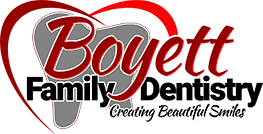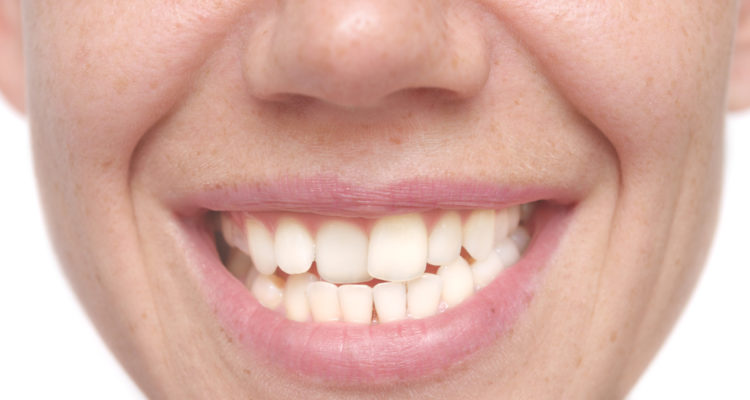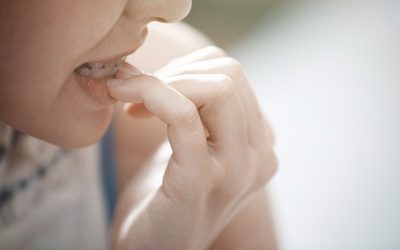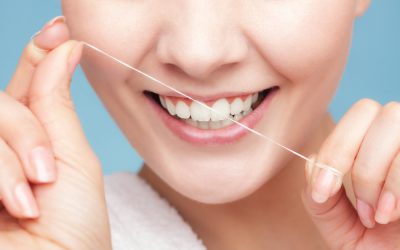A crooked smile is considered to be a charming facial feature. . . but crooked teeth, not so much. Society perceives that people with straight teeth are more intelligent, successful, and happy, and crooked teeth can be a source of shame, decreased self-esteem, and a loss of confidence in your smile.
In most cases, crooked teeth are a genetic feature you are born with, similar to eye or hair color. But misalignment can also be caused by a traumatic facial injury, the early loss of baby teeth, a too-small or overcrowded mouth, or prolonged thumb sucking or pacifier use as a child. Crooked teeth are more than just an aesthetic issue – they can lead to serious oral health problems if left untreated.
According to the American Dental Association (ADA), crooked teeth affect more than just the health of your mouth – they can affect the health of your entire body as well. Bacterial oral infections have been linked to heart disease, strokes, pneumonia, and diabetes. And crooked teeth can cause more than enough damage to your mouth alone:
- Your teeth are spaced to evenly distribute pressure when you bite and chew. When the alignment is out of place, biting and chewing puts undue stress on both the wrong parts of the teeth and on the jaw. This extra force can lead to chips, cracks, and fractures in the teeth. Misalignment can also be the reason behind the jaw condition TMJ, which develops when excess stress is placed on the tempomandibular joint where the jaw hinges. TMJ is characterized by an uneven bite, jaw pain, headaches, and pain that extends from the jaw down the neck and shoulder.
- Misaligned teeth are more prone to uneven wear and erosion of the enamel on the surface and sides of teeth; teeth may clack or rub against each other when biting and chewing, which chips away at the protective enamel cover.
- Crooked teeth are often seen in an overcrowded mouth or accompanied by an overbite or underbite. In these cases, one or more teeth may protrude, which will place excess strain on the jaw and throw it out of alignment. Protruding teeth are also more susceptible to damage if you encounter an accident or trauma to the face, and overextended upper or lower teeth can lead to pain when speaking, biting, and chewing due to jaw misalignment and teeth clacking against each other.
- When teeth are in proper alignment, they fit firmly against the gum. Crooked teeth leave gum pockets where nasty bacteria become trapped. Over time, built-up bacteria in the gum pockets cause bad breath, gum disease – gingivitis or periodontitis, abscesses, and/or oral infections.
- Crooked teeth make proper oral hygiene more difficult to follow. It may be challenging or even impossible to brush and floss in places where teeth overlap, and your toothbrush may not be able to reach into the deep gum pockets where teeth have pulled away from the gum. Bacteria left to fester in your mouth and between your teeth can cause cavities and tooth decay.
Besides cleaning and examining your teeth, screening you for oral cancer, and reviewing tips for good oral hygiene practices, your dentist will also be your first source for detection of crooked teeth. During dental exams, he or she will check for an abnormal alignment or appearance of the face, lisping, and chewing or biting difficulties. Your dentist will then recommend you see an orthodontist for treatment options. Today, there are numerous treatment options available for correcting misaligned teeth. In mild cases, a removable retainer may be the only treatment necessary. In more severe cases, braces or permanent retainers may be needed. If you suffer from crooked teeth due to an overcrowded mouth, tooth extraction is a possible treatment option to make space in the mouth.
Don’t let crooked teeth stop you from showing the world the beauty of your smile. Contact Boyett Family Dentistry today to schedule an appointment with Dr. Boyett, who will thoroughly examine your mouth, teeth, and jaw to check for proper alignment. Dr. Boyett believes that early detection and early treatment is the key to long-lasting oral health; call our office today at 863-294-9200.





